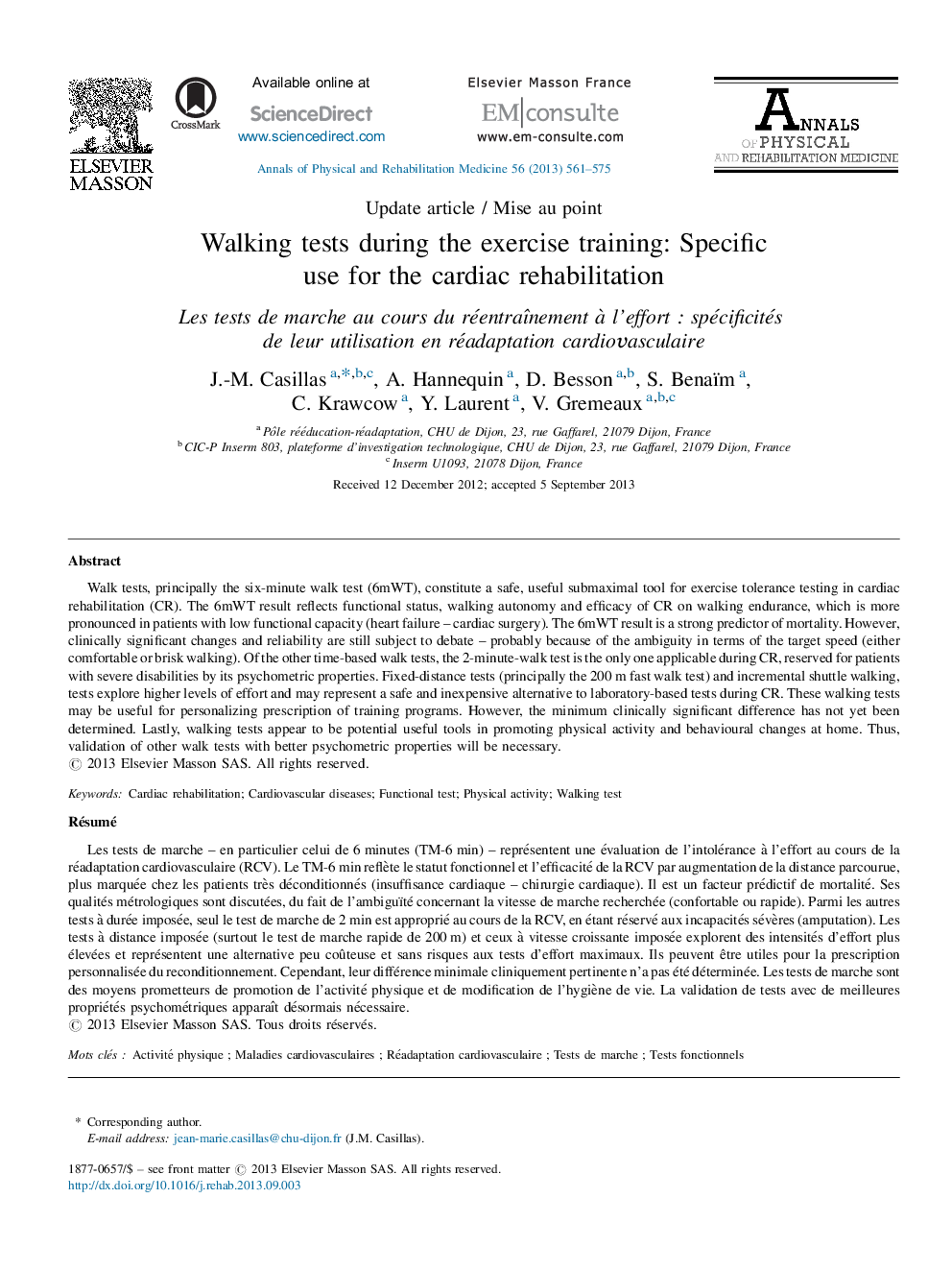| کد مقاله | کد نشریه | سال انتشار | مقاله انگلیسی | نسخه تمام متن |
|---|---|---|---|---|
| 4040771 | 1603314 | 2013 | 15 صفحه PDF | دانلود رایگان |

Walk tests, principally the six-minute walk test (6mWT), constitute a safe, useful submaximal tool for exercise tolerance testing in cardiac rehabilitation (CR). The 6mWT result reflects functional status, walking autonomy and efficacy of CR on walking endurance, which is more pronounced in patients with low functional capacity (heart failure – cardiac surgery). The 6mWT result is a strong predictor of mortality. However, clinically significant changes and reliability are still subject to debate – probably because of the ambiguity in terms of the target speed (either comfortable or brisk walking). Of the other time-based walk tests, the 2-minute-walk test is the only one applicable during CR, reserved for patients with severe disabilities by its psychometric properties. Fixed-distance tests (principally the 200 m fast walk test) and incremental shuttle walking, tests explore higher levels of effort and may represent a safe and inexpensive alternative to laboratory-based tests during CR. These walking tests may be useful for personalizing prescription of training programs. However, the minimum clinically significant difference has not yet been determined. Lastly, walking tests appear to be potential useful tools in promoting physical activity and behavioural changes at home. Thus, validation of other walk tests with better psychometric properties will be necessary.
RésuméLes tests de marche – en particulier celui de 6 minutes (TM-6 min) – représentent une évaluation de l’intolérance à l’effort au cours de la réadaptation cardiovasculaire (RCV). Le TM-6 min reflète le statut fonctionnel et l’efficacité de la RCV par augmentation de la distance parcourue, plus marquée chez les patients très déconditionnés (insuffisance cardiaque – chirurgie cardiaque). Il est un facteur prédictif de mortalité. Ses qualités métrologiques sont discutées, du fait de l’ambiguïté concernant la vitesse de marche recherchée (confortable ou rapide). Parmi les autres tests à durée imposée, seul le test de marche de 2 min est approprié au cours de la RCV, en étant réservé aux incapacités sévères (amputation). Les tests à distance imposée (surtout le test de marche rapide de 200 m) et ceux à vitesse croissante imposée explorent des intensités d’effort plus élevées et représentent une alternative peu coûteuse et sans risques aux tests d’effort maximaux. Ils peuvent être utiles pour la prescription personnalisée du reconditionnement. Cependant, leur différence minimale cliniquement pertinente n’a pas été déterminée. Les tests de marche sont des moyens prometteurs de promotion de l’activité physique et de modification de l’hygiène de vie. La validation de tests avec de meilleures propriétés psychométriques apparaît désormais nécessaire.
Journal: Annals of Physical and Rehabilitation Medicine - Volume 56, Issues 7–8, October 2013, Pages 561–575